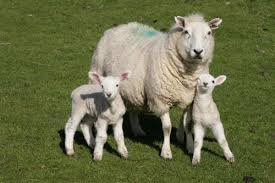Pregnant women who come into close contact with sheep during lambing or other farm animals giving birth have been warned they are risking their own health and that of their unborn child.
The warning of the infections such animals can carry comes from the Departments of Health, Social Services and Public Safety, Agriculture and Rural Development and the Health and Safety Executive for Northern Ireland.
Dr Michael McBride, Chief Medical Officer for Northern Ireland said although reports of these infections were extremely rare, it was important pregnant women were aware of the potential risks and take appropriate precautions.
He added: “It is also important to note that these risks are not only confined to the spring (when the majority of lambs are born), nor are the risks only associated with sheep: cows and goats that have recently given birth can also carry similar infections.”
Farmers have a responsibility to minimise the risks to pregnant women, including members of their family, the public and professional staff visiting farms.
To avoid the possible risk of infection, pregnant women should:
:: not help ewes to lamb, or to provide assistance with a cow that is calving or a nanny goat that is kidding;
:: avoid contact with aborted or new-born lambs, calves or kids or with the afterbirth, birthing fluids or materials (e.g. bedding) contaminated by such birth products;
:: avoid handling (including washing) clothing, boots or any materials that may have come into contact with animals that have recently given birth, their young or afterbirths. Potentially contaminated clothing will be safe to handle after being washed on a hot cycle;
:: ensure contacts or partners who have attended lambing ewes or other animals giving birth take appropriate health and hygiene precautions, including the wearing of personal protective equipment and clothing and adequate washing to remove any potential contamination.
Pregnant women should seek medical advice if they experience fever or influenza-like symptoms, or if concerned that they could have acquired infection from a farm environment.
Tags:





